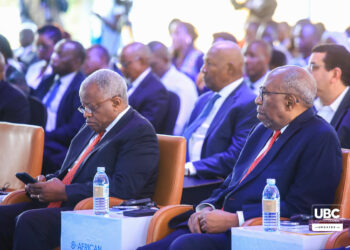By Denis Jjuuko
About 17 years ago, some business people claiming to be concerned about the slums of Kampala hatched an idea of “developing organized housing estates.” They claimed unplanned housing in Kampala made the city an eyesore to everyone. They had a point. It is not uncommon to find a USD1 million house sharing a perimeter wall with others worth USD3,000. Sometimes one house faces this side and another the other side. A storied building here and a charcoal seller’s kiosk there.
Anyway, the businesspeople bought large tracts of land on the outskirts of Kampala and parceled them into plots measuring approximately 50×100 feet or 11.5 decimals, basically less than an eighth of an acre.
Before we knew it, the 50×100 feet plots had become the standard size of plots on which the so-called middle class would build their dream residential homes. The businessmen claimed they had included spaces for recreation within these estates, schools and shopping centres. Without any direct ownership to these open spaces by the people who had bought the plots, the businessmen eventually sold these open spaces so people could build yet more homes or whatever.

As Kampala expanded, land became a very expensive commodity. Open spaces were taken over and malls or some ugly buildings were erected. Kampala City Square or Constitutional Square was even once proposed for an underground shopping mall! When whoever was proposing it realized how untenable his idea was, the police cordoned it off for themselves and turned the upper part into a barracks of sorts. Ugly cheap structures were erected at Centenary Park.
If you drive through the suburbs, schools no longer have open spaces. They too are being built on 50×100 feet plots. The kids have nowhere to play. I am told that in Luwero district which boarders Wakiso, north of Kampala, they even parcel out 25×50 feet plots!
There are very few open spaces left in Kampala. The biggest now is Kololo Ceremonial Grounds. You can’t tell for long it will remain so before some buildings are constructed there. I am thinking the National ID guys who operate at the pavilion will one day wake up and say that they need better offices and allocate themselves a few acres.
Almost every weekend, there is an event at Kololo. If it is not the Rotary Cancer Run or the MTN Marathon, it is some festival of one kind or another. Even weddings now are being held there. That shows the decrease in the number of open spaces in Kampala. Kololo, which maybe about 30 acres can range from Shs7m to Shs100m to hire depending on who you are or who you talk to. Besides, it is also not necessarily easy to get even when you have money. You have to speak to ministries of internal affairs and defense to get it. And if you are not well connected, you can forget all about it.

The other spaces left are the rugby grounds at Legends and Kyadondo, a bit of UMA show grounds and the Cricket Oval at Lugogo. I hear a certain prophet pays Shs10m every Tuesday for Kyadondo.
So with very little space left, the next profitable business in greater Kampala is going to be open spaces. By greater Kampala, I include Kampala, wakiso, Mukono and some parts of Mpigi. These open spaces like we have seen with Kololo may earn you more money than some buildings. Once you have secured the land, you don’t need much money to put up structures. All you need is to keep them green with maybe a fence and some basic amenities like toilets. Kololo doesn’t even have enough toilets, you must hire mobile ones from the likes of Fotogenix.
In Buwaate, a few kilometers from Ntinda, an entrepreneur has already realized the lack of open spaces and built a ‘stadium’ with an artificial turf where people pay to play soccer and/or run around. This entrepreneur charges per hour. You pay, play soccer or whatever and after an hour another team comes in.

So if you are thinking real estate in greater Kampala, think of open spaces. Weddings, sports enthusiasts, flea markets, pastors, exhibitors, festival organisers, concerts and the like will come calling. Schools will need spaces for their students to exercise a bit or hold sports days. And those in love will need a park to walk sometimes in the evening. The kids will need places to ride their bicycles and families will need to do some picnics not very far from their homes.
#OutToLunch is Denis Jjuuko’s compilation of his many lame and flaky ideas.
The author is a media and communication consultant and a real estate entrepreneur. Twitter: @Denis_Jjuuko
Do you have a story in your community or an opinion to share with us: Email us at editorial@watchdoguganda.com











